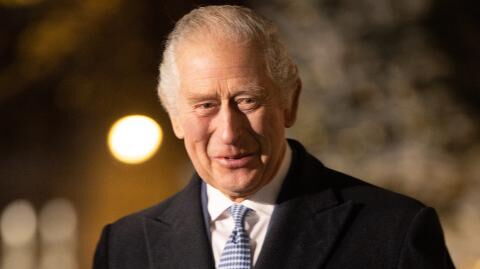King Charles ascended the throne automatically when his mother, Queen Elizabeth died on September 8, 2022. On May 6, King Charles will have been crowned King alongside his wife Camilla, who will become Queen.
Discover our latest podcast
The King or Queen of England has a lot of authority. However, they have no personal power. The Crown, however, has a great many constitutional obligations, as well as a great deal of theoretical and symbolic power. But what exactly are these powers?
King Charles has very limited powers
The King of England is above all a Head of State. In Britain, he is the equivalent of the French president or the American president. But their functions and roles within the state apparatus are very different.
The powers of the King of England are constitutionally limited by a series of Acts and Charters established by British parliaments in the 13th century.
The Magna Carta of 1214 and the Habeas Corpus Act of 1679 served to prohibit arbitrary arrests, thereby protecting the individual liberties of the citizens of the realm.
The Bill of Rights of 1689 was another crucial text in limiting the powers of the king. It was imposed on the rulers of England (William III and Mary II) following the Glorious Revolution and sets out the principles of parliamentary monarchy in England.
Read more:
⋙ King Charles' coronation: Princess Anne appointed new role that gives her vital part in the ceremony
⋙ Princess Anne reveals her surprising opinion on King Charles' plans for monarchy in rare interview
For more than two centuries, no British monarch has attempted to oppose a measure passed by his government, even when the monarch in question personally disapproved of a particular piece of legislation. This was the case with George V when the Irish Independence Act was passed.
Finally, although one might think that the English monarch has considerable powers (especially as we remember the abuses committed by our own monarchs), this is not so. The powers of the King or Queen of England are primarily symbolic.
King Charles is more of a symbolic
The English monarch remains an important member of the management of the United Kingdom's affairs. He is responsible for appointing the Prime Minister (but does not choose him). He also opens the sessions of Parliament and consults his Prime Minister on a weekly basis. The Prime Minister keeps the monarch informed of affairs of the state and seeks his advice on new domestic policy issues and international relations.
Every bill passed by parliament is validated by royal assent and the monarch plays a key role in international affairs. The British monarch is the interlocutor with other heads of state in terms of protocol.
However, he does not intervene in discussions between states, as this role is played by the Prime Minister.
Read more ⋙ King Charles' coronation: Here's why His Majesty will wear two crowns and one is worth £5 billion
Key members of the British Royal Family enjoy great popularity both inside and outside the Kingdom. The Queen of England's state visits have always been well attended and commented on. Public appearances by princes are also popular events. This is particularly true in the United States, a country born in 1776 after a break from the monarchy.
As Head of State, the British monarch is also commander-in-chief of the British army. However, this is a ceremonial role. The British monarch is also the Supreme Governor of the Church of England and therefore appoints bishops and archbishops on the recommendation of the Prime Minister. He is also responsible for opening the five-yearly Synod of the Church of England.
This article was translated from Oh!MyMag FR.
Sources used:
The Week: 'What powers does King Charles III have?'















